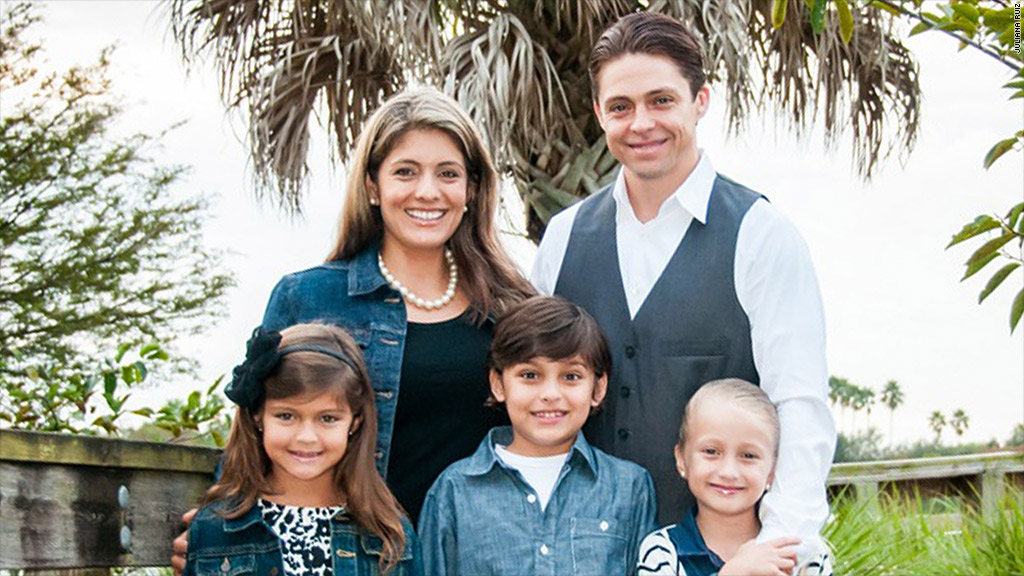
Low mortgage rates and soaring rents have convinced a growing number of homeowners to hang onto their former homes and become landlords instead.
"Clients tell us all the time, 'We're never going to sell our home, even after we buy a new one,'" said Glenn Kelman, CEO of the brokerage, Redfin.
Susan Young of Lawrence, Kan., refinanced the mortgage on her house in 2013, landing a 3.25% rate on a 30-year fixed loan. She bought another house but has not put her old home on the market.
"If the interest rate was high, I'd sell," she said. "But this is such a perfect loan package, I just can't bring myself to give it up."
She gets $1,100 a month in rent, several hundred dollars more than her expenses, and is using the profits to pay off her mortgage.
Related: Buy vs rent: What you'll pay in 10 biggest cities
Redfin reports that 19% of current homeowners either purchased or refinanced homes between 2011 and 2013 -- when rates were historically low falling just below 3.4%.
Chris Cannon and his wife currently live in Mt. Lebanon, Pa. and plan to move to start a family. But he will a hard time letting go of his home.
"It would be incredibly hard to give up the 3% mortgage we have," he said. "When we bought in November 2012, rates were at the bottom -- about 3.4% for a 30-year -- and we paid a couple of points to get ours down to 3%."
He figures he can rent his home in Mt. Lebanon for $1,400 to $1,500 a month, easily covering his mortgage payment and taxes which total $1,100 a month.
The math works in most landlords' favor these days. Rents have risen by about 20% nationwide since mid-2006, the housing bubble peak, while home prices are still about 21% below what they were at that time.
For people who are still underwater on their mortgages and unable to profit from a sale, renting helps soften the blow.
Related: Millennials squeezed out of buying a home
Juliana Ruiz and her husband Mauricio Jimenez bought their three-bedroom Pembroke Pines, Fla., home for $362,000 in June, 2005 when the market was red hot.
They opted for an adjustable rate mortgage, which turned out to be a great deal: rates have plunged, as have their mortgage payments. Now, they pay a 2.75% rate and owe $250,000 on the home, which is worth about $300,000 thanks to a recent surge in home values.
But since they now have three children and both Juliana and Mauricio work mostly from home, they needed more room.
They bought a six-bedroom home nearby and have been renting their old place out for a year.
"The local real estate market allows me to cover the mortgage and small incidentals with the rent collected," said Ruiz. "At the same time, my property value is increasing."
If the mortgage rate starts to climb, they'll consider selling. By then, they hope they will be able to sell for a profit.
Of course, there are downsides to becoming a landlord. Owners have to make repairs, deal with tenants and cover expenses, even when the property is vacant.
"[Being a landlord is] definitely not for someone who hates spending money on plumbing repairs and new locks," said Young.
Related: How to win a bidding war on a home
And some tenants can be demanding, say if the water isn't hot enough or the air conditioning not cold enough.
"Tenant happiness is important to me and I try to give them whatever they ask for -- within reason," she said.
The surge in landlords is working out well for most owners, but it is taking a toll on the housing market, according to Kelman. Every home converted into a rental property is one less that goes on the market. And in hot real estate markets these days, very few homes are up for sale.
"It's a major reason we have low inventory and limited sales growth," said Kelman.


